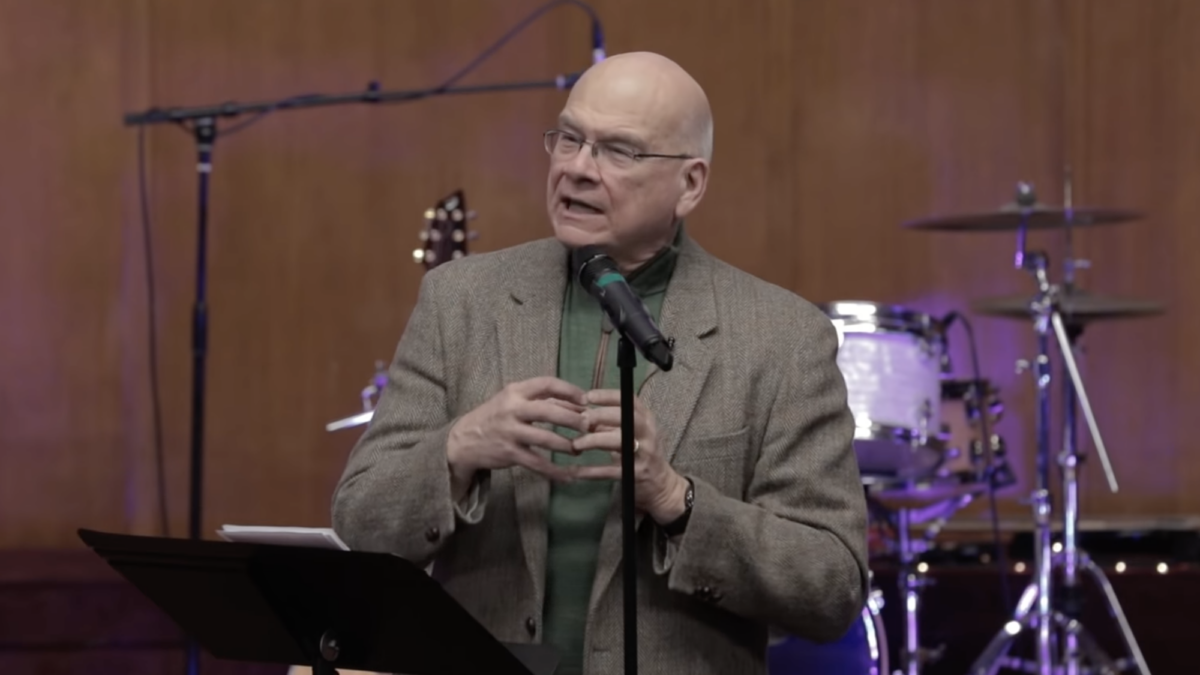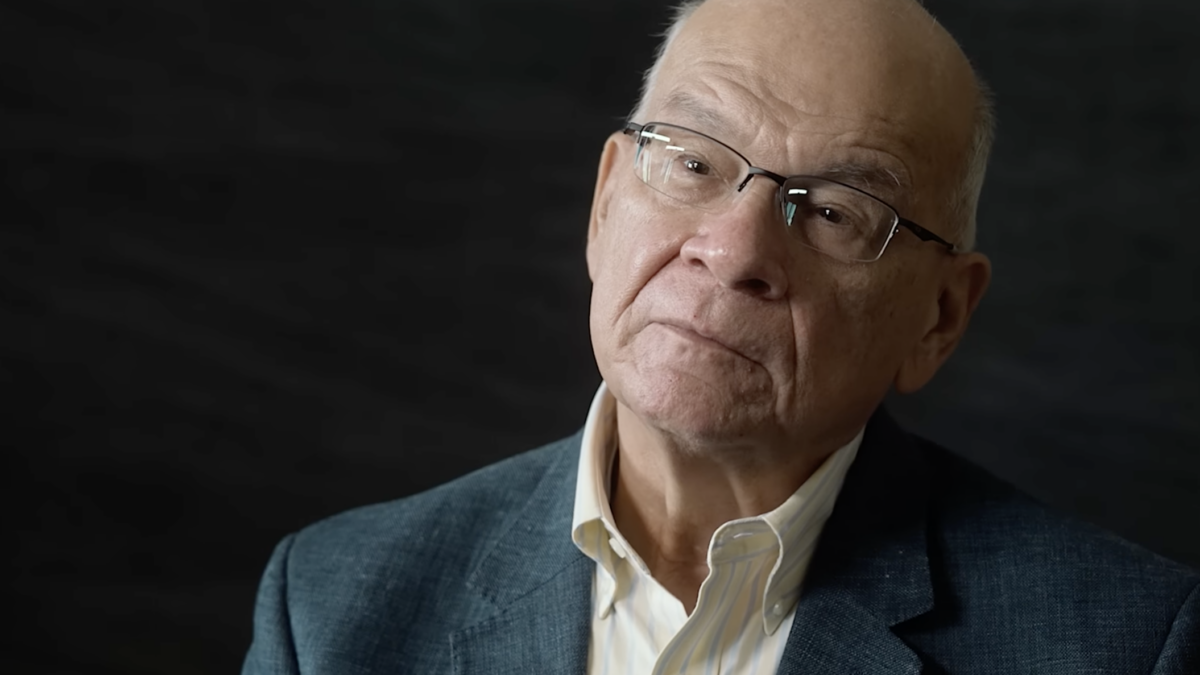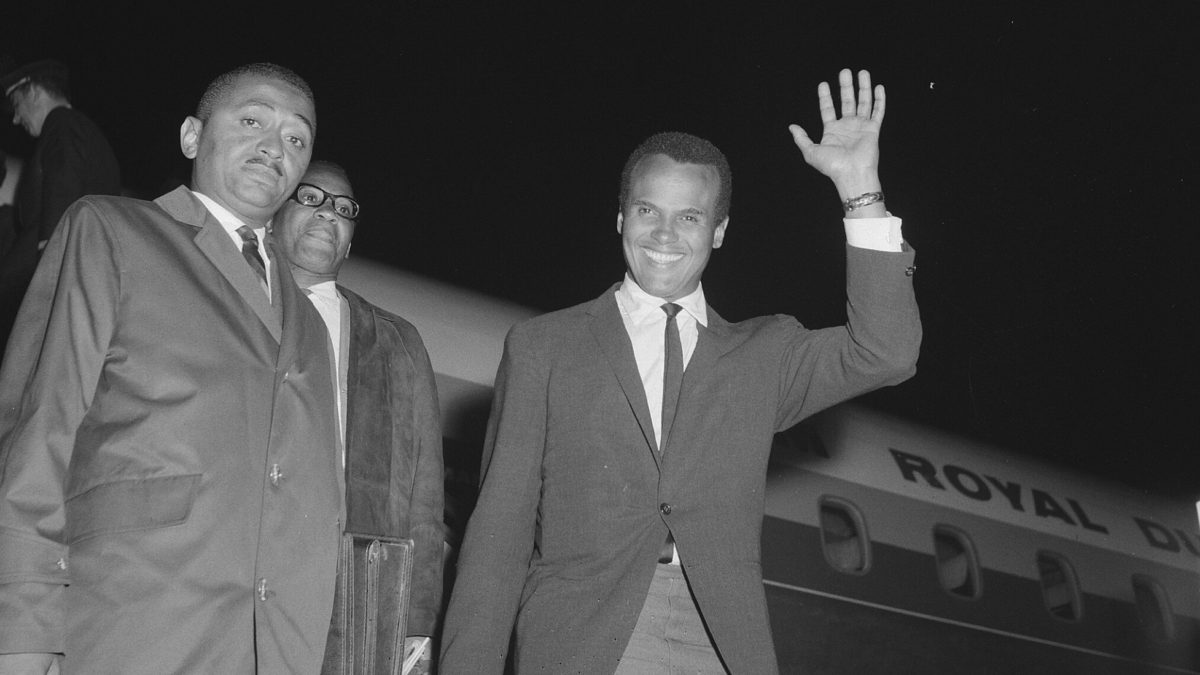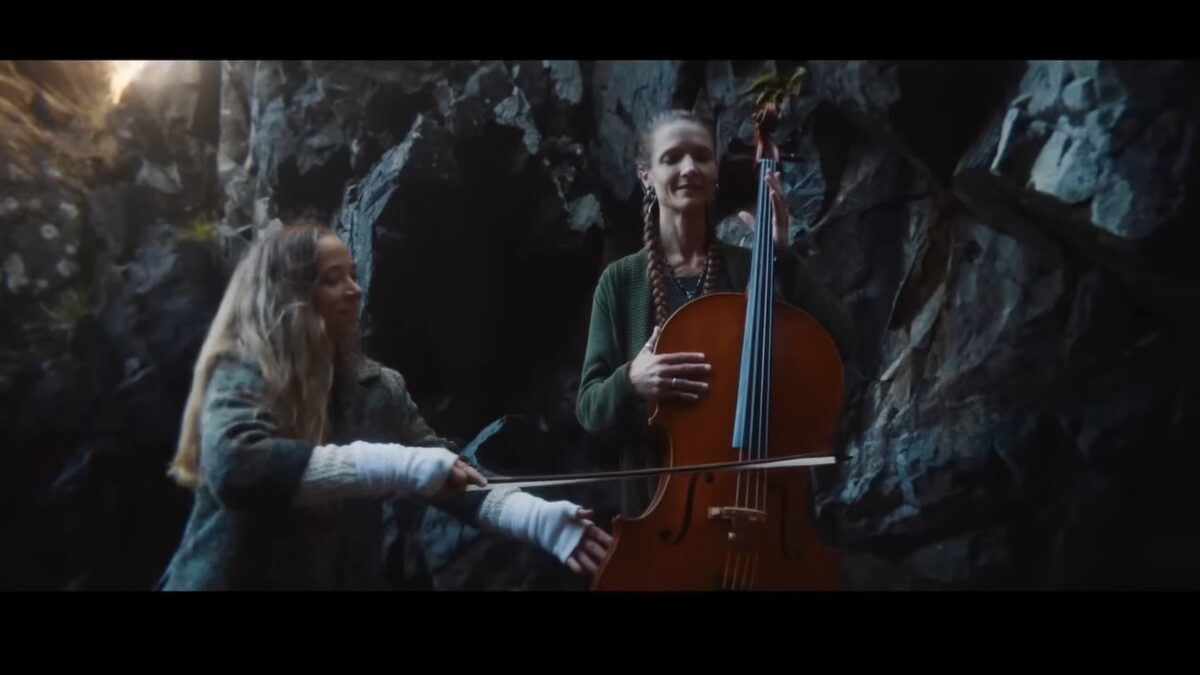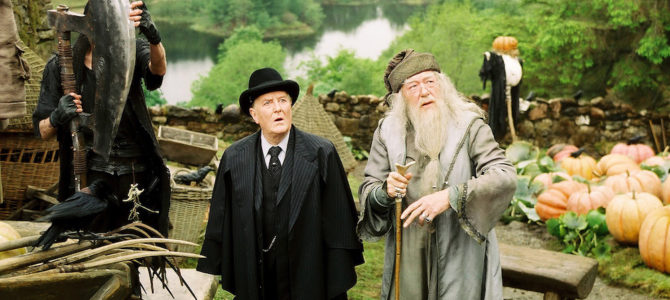
When I was little, Friday night pizza and movie parties with my mom, dad, and sister were the highlight of my week. Our favorite series to watch was “All Creatures Great and Small”—the BBC production of James Herriot’s classic tales of life as a vet in rural England.
I never dreamed that I would get to meet my favorite character from the show in real life. But on an October Sunday afternoon in my senior year at Hillsdale College, I spent 20 minutes face-to-face with Robert Hardy, one of the most successful British character actors of the 20th century. He was on campus to speak at a seminar on Sir Winston Churchill, who he’d played on screen.
I was waiting on a couch in the sunshine just after 5 p.m. that Sunday when I heard the familiar, cheery British voice coming down the hallway. It was unmistakably Hardy’s: I’d heard it on screen often, calling greetings to his various pets on “All Creatures Great and Small.” Just then, he popped around the corner.
“You must be Vivian Hughbanks,” he said, his whole face smiling. “How very nice.”
Dressed in a green tweed jacket, with a dapper gold pocket square, he was unabashedly himself—and delightfully so. In the minutes that followed, I got a glimpse of the man behind the act, and I saw how much of himself he had inserted into his roles on screen.
I asked him what he remembered about the day that Adolf Hitler invaded Poland, and England went to war with Germany. He described his reaction when Prime Minister Neville Chamberlain announced that Britain was at war.
“All of that time, one was in some kind of mixture of excitement and dread,” he said. “Excitement because I was at the right age to be excited, obviously. War. Thrill. Airplanes. I was trained as a pilot.”
Robert Hardy’s pilot training for the Royal Air Force took place in Terrell, Texas. My sister interned at the No. 1 British Flying Training School Museum in Terrell when she was in college, archiving and documenting photos of the pilots. She found Hardy’s flight class photo during her time there, and we had duly fangirled. I asked Robert about his time in Texas, and presented him a copy of his class photo during our chat.
“Well!” he’d said, with a look of disbelief. “Now who are those lads? My goodness.”
On the more peaceful side of things, he told me about his time at Oxford as a student of C.S. Lewis and J.R.R. Tolkien.
He described his favorite class with Tolkien: an evening at the Eagle and Child pub, when the linguistic master described, without foreknowledge, where each student was from and what influences had shaped each of their accents.
“He went ‘round the six, and six jaws dropped,” Hardy told me. “And when he got to me, he said, ‘Ah, interesting. A bit of border Welsh lilt there, but sadly overlayed by smart London.’ And I said, ‘You’re absolutely on target in every degree.’”
Tolkien wanted his students to understand how much knowledge can be gleaned from the details of language use. Hardy said that by the end of that class, he was able to recite Chaucer in the original Middle English.
Then, sitting across from me, his eyes brightened. With an intense stare and dubious tone, Robert Hardy recited the opening words of the Canterbury Tales to me, as he had learned them from J.R.R. Tolkien himself.
After several minutes more chatting about his role as Winston Churchill, it was time for him to leave for another engagement.
I never imagined that I’d see him again.
Hardy returned to Hillsdale to speak the next spring, and I had good fortune of interviewing him again. This time in brown tweed, he was as radiant as before, eyes twinkling with enthusiasm. We chatted about what influenced his acting, his role as Cornelius Fudge, the Minister of Magic in the Harry Potter films, and the highlights of his career. Then he asked me about my career plans. I told him I was still deciding what to do with my life, but that one option in Santa Barbara, California was growing on me. He told me about some wonderful times he’d had there and advised me to go.
“Do have glorious fun in Santa B!” he’d said, shaking my hand, and making his exit.
On Thursday, after a brief illness, Robert Hardy died. He was 91 years old.
I didn’t know Robert Hardy. I watched him on tv, and I spoke with him twice. But in those two encounters, I found a man who was as enthusiastic to share his trade with young actors as he was to learn linguistics from J.R.R. Tolkien. I found a man whose delight over recounting his life experiences could immediately put a star-struck rookie reporter at ease. I found a man who cared genuinely about the humanity and comfort of each person he came across, and met each task with pure delight.
May we all have such care and such delight.


